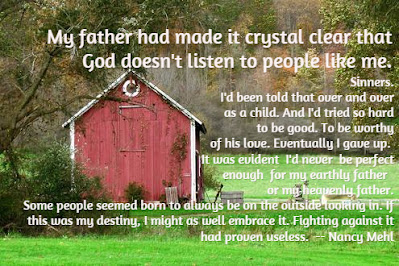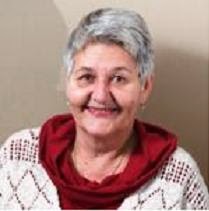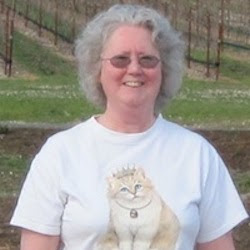Two Hoarders' Daughters Tell Their Stories
We've all heard about hoarders or seen documentaries about them on television. Few of us, however, have grown up in a hoarder's house. The children of hoarders have no choice. I'd like to introduce you to two of those children, now adults, who have written their stories.
My myLot friend, Lori Moore, wrote The Hoarder's Daughter: Memories of a Life in Chaos. Her mother was not only a hoarder but also an emotional abuser. Lori wrote her book to show others what the life of a hoarder is like and how it often destroys the hoarder's relationship with family and friends. She hopes to help people distinguish between a real hoarder and a messy or really disorganized person that keep a lot of clutter around. She also wanted to finally expose her family secret. She says "Toxic family dysfunction has to be acknowledged before it can be fixed."
Izabelle Winter's father also hoarded his possessions. Izabelle had left home as a young woman to escape the house.When she was married with eight-year-old twin girls and a ten-year-old son, her father fell from a ladder while pruning. He had turned his backyard into a garden all his neighbors admired, but most had never seen the inside of his house.
Izabelle's mother had died nineteen years earlier, after a mental breakdown. Isabelle's brother Ant still lived in the house with his father even though he was long into adulthood. He suffered from learning disabilities that hindered his ability to make decisions and take initiative. Isabelle knew she would have to take charge of getting the house ready for her dad to come home to, probably unable to walk. She wrote Diary of a Hoarder's Daughter to help others who may find themselves in a similar situation.
Lori's Story of Living with Emotional Abuse in a Hoarder's House
Lori writes as an abuse survivor. She dedicates her book to her brother whom she calls "my sibling survivor of the lying, manipulating, stealing, and hoarding person that we un affectionately referred to as 'Mean Mom.'" In the book she calls her mom Louise, though it's not her real name. Louise had so perfected her skills of intimidation and inducing guilt that Lori was fifty before she realized she was the abuse victim -- not her mom. Although her brother was also a victim, Lori believes his story is his to tell, not hers, so she tells only her part of it.
Growing Up in a Hoarding House
Lori recalls that the house she grew up in smelled so bad that people almost gagged when they walked in. The house was already full but her mother kept accumulating and the possessions had to go onto the backyard patio. Lori called the junk at the entrance "Mount Trashmore."
There were also health hazards. I won't go into all the horrifying details, but here are a couple to give you an idea. Trash was strewn everywhere. There was an air force of flies and gnats. There were maggots in the toilets and sinks. A stray cat had become part of the household, but no one cleaned the litter box, so the cat stopped using it. I think you've got the picture. It was so bad that Lori's brother, who had inherited the house, had to evict Louise from it after she'd lived there for 19 years.
Trying to Help Louise
After the eviction, Lori and her brother found a low-rent apartment for senior living and Louise didn't even pack since she resisted moving. Lori and her brother had supplied the new residence with clean furnishings and clothing and stocked the apartment with food. Louise had already begun to hoard again a month after she had this chance to start fresh. After four months she had done no cleaning, dishwashing or laundry.How This Affected Lori
Things I Learned from Lori's Book
- Ways in which emotional abuse and hoarding are related.
- Manifestations of Antisocial Personality Disorder
- Symptoms of a Cognitive Disorder
- Cognitive Symptoms of Depression
Izabelle's Efforts to Clear Space in a Hoarder's House
Izabelle Winter, a busy mother with a part-time job, had to completely disrupt her life for over a month to suddenly deal with what she saw as her "personal Everest" that she had to climb -- alone! She even refers to the clutter in her father's house as "The Mountain" whenever she writes about dealing with it. Because she found around sixty pairs of shoes in the clutter she went through, she calls her father Imelda in the book, after Imelda Marcos.
Climbing "Everest"
Izabelle had a deadline to clear enough space in the house for her father and visiting outside help to function. He could not be released from the hospital with a broken back until this was done. Wheelchair or walker access might also be needed. He needed to be able to get to his bed and an accessible bathroom.
The problem with clearing space in a hoarder's house is that there is no room for sorting. Every available space in Imelda's house was filled with junk from floor to ceiling -- every room, every cupboard, and every path through the house. The kitchen, bathroom, and stairs were also full. None of the items were organized. Junk mail mixed with shoes, clothes, spare parts, broken items, unopened packages of children's clothes, money inside magazines and receipts, trash ... well you get the idea. Izsabelle describes her feelings here:
I felt as though I was at Everest base camp, all alone, wearing just flip-flops and a woolly hat. I was totally unprepared for the nightmare I faced; totally terrified by it and afraid I'd fall on the way up the mountain. I just wanted to go home and hide.
Health Issues
To add to Izabelle's problem, she had severe dust allergies and asthma. She sometimes had been unable to breathe when around too much dust. This often sent her to the hospital and she almost died there once. How was she to attack clearing the space Imelda needed? Even on her visits to him she always talked to him outside in the garden.
After he fell, whenever she entered the house to work she had to wear a dust mask, trousers, and long sleeves. When she started the clearing project, she had to recruit help, often from her brother Ant, to carry boxes of stuff outside so she could sort there.
Helpful People Who Told Comforting Stories
You can just imagine Izabelle's life, caring for her children, working on "The Mountain," and visiting Imelda in the hospital every afternoon just before going to work in the late afternoon. I will leave the details for you to read in the book. She attacked the junk piles methodically and searched through every pile or box before throwing anything from it in a trash bag. Close friends and neighbors often helped her, and they told her stories about her mother from the good years. She appreciated that. She also unearthed diaries her mother had written that showed how the hoarding had affected her.
It's Hard to Cure a Hoarder
Success?
When Imelda was finally released from the hospital, Izabelle had cleared enough space so he could come home and sleep in his bed and take care of his needs. She and her friends had worked almost nonstop in every spare minute. Later Izabelle and Imelda were approached to participate in a BBC documentary show on hoarding. After much soul searching and discussion with the producers, they decided to participate. Later they did a follow-up episode. Before that episode, professionals came to clear the living room enough to allow Imelda's grandchildren to get to the sofa so they could sit there together to interact. The camera view of the room was clear, even though some stuff still remained outside the camera view.
The idea was that they took everything out and were hoping Imelda wouldn't want to bring it all back in, but he did want to bring most of it back in. Izabelle didn't visit much that first month. She wanted to see if her father would actually clear anything he had said he would.
Six months after the program was filmed, Imelda's stuff was creeping back up the stairs and into other places Izabelle had cleared. She decided it's his house and she would let him live as he chose. It's hard for a hoarder to change -- even with professional help. She accepted he'd never change at 83. Ten months after the fall, at the time the book was written, the house was filling up again.
Diary of a Hoarder's DaughterCheck Price
Contrasting These Memoirs by Hoarding House Survivors
Both books discuss these topics.
- Some reasons people hoard
- Broken family relationships due to hoarding
- Experiences of family members trying to help hoarders
- Descriptions of hoarder house conditions
- Health hazards of hoarding and living with a hoarder
Unique Content in The Hoarder's Daughter by Izabelle Winter
Unique Content in The Hoarder's Daughter by Lori Moore
More Resources
Stuff: Compulsive Hoarding and the Meaning of ThingsCheck Price
Whether you have a tendency toward hoarding, want to help someone with a severe hoarding problem, or just want a better understanding of hoarding, I hope this post has helped you. If it has, please share it. People who hoard tend to keep it secret. You never know whom you may be helping by giving them this information.
 | |||
(http://www.gnu.org/copyleft/fdl.html)], from Wikimedia Commons, modified












































